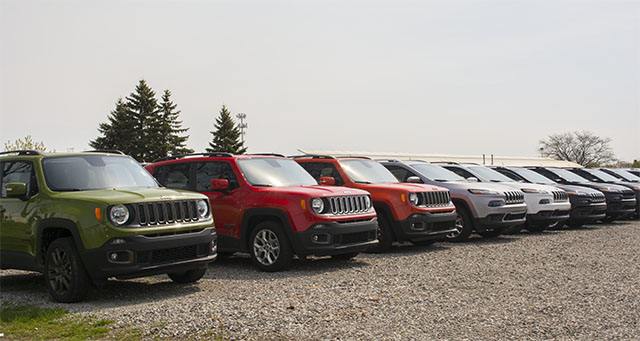Search the Community
Showing results for tags 'Months'.
-
While car sales are down, the number of people opting for loan lengths from 73 to 84 months is going up. Karl Kruppa, senior automotive solutions consultant for Experian said at a conference last week that the share of 73 to 84 months car loans has been rising over the past eight years. Through February of this year, 33.8 percent of loans were for terms longer than 73 months. Other numbers to take into consideration, In the fourth quarter of 2010, three-fourths of new-car loans were between 73 to 75 months. Only 17.1 percent of loans were 84 months. Fast forward to the fourth quarter of 2016 and 28.7 percent of new car loans reached 84 months. Why the sudden increase? It might be due to buyers seeing the small payments on an expensive vehicle, without taking into consideration fully about the length of the loan. More worrying however is the growing popularity of long-term loans on used vehicles. Most of these loans are being used on late-model vehicles - about 30 percent of 2016 model year vehicles are being financed with 73 to 84-month terms. But long-term loans are being used on vehicles that are five years or older. "You know what's kind of startling? There's actually 10 percent of [2010 model-year] used vehicles being financed at a term between 73 and 84 months. Longer terms are here, and more and more lenders are willing to do that," said Kruppa. Source: Automotive News (Subscription Required)
- 27 comments
-
- loan terms
- months
-
(and 2 more)
Tagged with:
-
While car sales are down, the number of people opting for loan lengths from 73 to 84 months is going up. Karl Kruppa, senior automotive solutions consultant for Experian said at a conference last week that the share of 73 to 84 months car loans has been rising over the past eight years. Through February of this year, 33.8 percent of loans were for terms longer than 73 months. Other numbers to take into consideration, In the fourth quarter of 2010, three-fourths of new-car loans were between 73 to 75 months. Only 17.1 percent of loans were 84 months. Fast forward to the fourth quarter of 2016 and 28.7 percent of new car loans reached 84 months. Why the sudden increase? It might be due to buyers seeing the small payments on an expensive vehicle, without taking into consideration fully about the length of the loan. More worrying however is the growing popularity of long-term loans on used vehicles. Most of these loans are being used on late-model vehicles - about 30 percent of 2016 model year vehicles are being financed with 73 to 84-month terms. But long-term loans are being used on vehicles that are five years or older. "You know what's kind of startling? There's actually 10 percent of [2010 model-year] used vehicles being financed at a term between 73 and 84 months. Longer terms are here, and more and more lenders are willing to do that," said Kruppa. Source: Automotive News (Subscription Required) View full article
- 27 replies
-
- loan terms
- months
-
(and 2 more)
Tagged with:
-
We're getting close to entering the seventh month of not having a fix for Volkswagen's cheating TDI engines in the U.S. A couple weeks back, a Federal judge in California gave Volkswagen a deadline of March 24th to provide a definitive status of a fix. But Volkswagen might not have the answer the judge or affected owners want. In an interview with German newspaper Wolfsburger Allgemeine Zeitung, Volkswagen brand boss Herbert Deiss said it could take months before Volkswagen and U.S. authorities come to an agreement. "I think that we have a good chance to reach an agreement with the authorities in the US in the coming months," said Deiss. There are a couple possible reasons for Deiss' response. First is that Volkswagen still doesn't have another solution ready. As we reported back in January, Volkswagen's first proposal was rejected by CARB due to it being "incomplete, substantially deficient and fall far short of meeting the legal requirements to return these vehicles” to compliance. Volkswagen has been hard at work on a new proposal since then. There has been talk this new proposal will include a buyback program. The second reason comes down to money. Volkswagen knows that it will be facing large fines from various regulators, along with the massive costs in terms of fixing vehicles and dealing with lawsuits. Source: Wolfsburger Allgemeine Zeitung, Reuters
- 2 comments
-
- As the
- As the Diesel Emits
- (and 6 more)
-
We're getting close to entering the seventh month of not having a fix for Volkswagen's cheating TDI engines in the U.S. A couple weeks back, a Federal judge in California gave Volkswagen a deadline of March 24th to provide a definitive status of a fix. But Volkswagen might not have the answer the judge or affected owners want. In an interview with German newspaper Wolfsburger Allgemeine Zeitung, Volkswagen brand boss Herbert Deiss said it could take months before Volkswagen and U.S. authorities come to an agreement. "I think that we have a good chance to reach an agreement with the authorities in the US in the coming months," said Deiss. There are a couple possible reasons for Deiss' response. First is that Volkswagen still doesn't have another solution ready. As we reported back in January, Volkswagen's first proposal was rejected by CARB due to it being "incomplete, substantially deficient and fall far short of meeting the legal requirements to return these vehicles” to compliance. Volkswagen has been hard at work on a new proposal since then. There has been talk this new proposal will include a buyback program. The second reason comes down to money. Volkswagen knows that it will be facing large fines from various regulators, along with the massive costs in terms of fixing vehicles and dealing with lawsuits. Source: Wolfsburger Allgemeine Zeitung, Reuters View full article
- 2 replies
-
- As the
- As the Diesel Emits
- (and 6 more)



